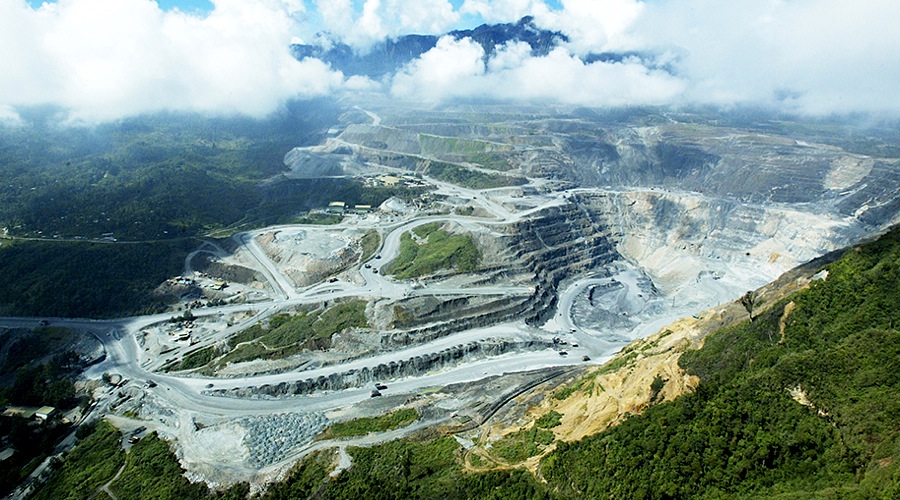PNG puts Barrick, Zijin on notice over Porgera gold mine negotiations

Papua New Guinea plans to take a larger share of the Porgera gold mine as part of lease-renewal talks, diluting the ownership of joint venture partners Barrick Gold Corp and Zijin Mining Group, the country’s commerce minister told Reuters on Monday.
The planned changes are part of a push by the South Pacific archipelago to transform its economy under new government leadership amid a perceived lack of benefits flowing from resources projects back to communities.
Porgera, located in PNG’s northern highlands region, is expected to produce 240,000 to 260,000 ounces of gold this year. Barrick and Zijin each own 47.5% of the mine, with the remaining 5% held by landowner group, Mineral Resources Enga.
PNG’s Minister for Commerce and Industry, Wera Mori, said a portion of Barrick and Zijin’s stakes would be given to the national and provincial governments and to landowners.
Government plans to take a larger share of the Porgera gold mine as part of lease renewal talks
“We would like to see the mine to continue, but this time to be structured in such a way with a lot more national interest in it,” Mori told Reuters in an interview in Sydney.
The final figure to be held by Barrick and Zijin would be determined during on-going negotiations over a requested 20-year extension to the lease, he said.
“It will decrease correspondingly, like if the state picks up say 30% or 40%,” said Mori.
Barrick and Zijin were not immediately available for comment. In early August, Barrick Chief Executive Mark Bristow said in a statement that there needed to be a “partnership approach” over the future of the mine.
The Porgera lease recently expired, although the operators are allowed to keep producing during lease-renewal negotiations.
Papua New Guinea land-owners have raised concerns over what they say are negative social, environmental and economic impacts from the mine. Negotiations with the project operators have been complicated by a split among the landowners.
Gold rush
PNG was the world’s 14th largest gold producer in 2018, according to the World Gold Council.
Mori, who was standing in for PNG’s new prime minister, James Marape, at an investor forum in Sydney, said the resources-rich nation was developing policies to keep more of the commodities it produces to improve its economy.
“We are in the process of developing the framework to retain at least 30% of our gold that we export every year,” Mori told the forum early on Monday.
Proposed changes to the country’s mining laws are expected to be presented to PNG’s parliament in the coming weeks, capturing all new projects.
Proposed changes to the country’s mining laws are expected to be presented to PNG’s parliament in the coming weeks, capturing all new projects
Mori said that PNG would also consider pegging its currency, the kina, to gold, rather than the U.S. dollar.
PNG’s central bank currently fixes its currency to a narrow U.S. dollar band, propping up the kina’s value while creating a shortage of dollars available in the Pacific nation.
Marape, the former finance minister who became PNG’s new leader in May after winning a vote in parliament, has put some of the world’s biggest resources companies on notice over how profits are shared from the country’s resource riches.
He said he wanted to turn PNG into the “richest black nation” on earth over the next decade.
This includes sending a team to renegotiate its Papua LNG agreement with French oil major Total SA.
Gerea Aopi, PNG country director at Papua LNG partner Oil Search, told the forum that the sector required certainty.
“I think the industries both in oil and gas and mining have indicated that we don’t object to the changes that are going to take place as long as there’s proper consultation,” Aopi said.
The Total-led Papua LNG, which also includes Exxon Mobil Corp, is part of a $13 billion project set to double the country’s exports of LNG.
(By Jonathan Barrett, Mell Chun and Melanie Burton; Editing by Richard Pullin)
{{ commodity.name }}
{{ post.title }}
{{ post.date }}




Comments